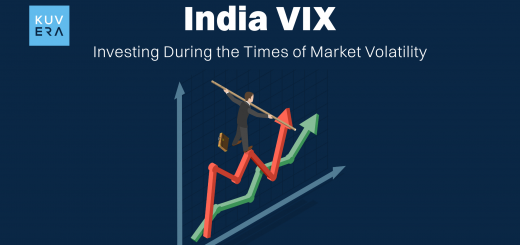Many are looking for alternative investments because of the recent growth in the number of retail investors in India and high market valuations. There is a large share market outside of the well-known stock exchanges for such investors. Shares sold in this market are buy unlisted shares, i.e., they are not listed on formal stock exchanges.
In contrast to the SEBI regulated stock market, unlisted shares are less transparent and have lower liquidity. However, they offer the potential for you to get significant returns upon listing on the stock exchanges.
Now, let us look at how to buy unlisted shares in India.
How Can You Invest in Unlisted Shares?
In contrast to listed shares, you cannot trade unlisted shares on the stock exchanges. So, if you want to invest, you have to do so in the following ways:
- Buying directly from promoters
Private placements allow one to invest directly by buying unlisted shares from promoters. Before allocating funds, contact a broker, investment bank, or wealth manager to help you with the price discovery and valuation. They will also help you connect with the company’s promoters and arrive at a mutual fair value.
- Buying from existing employees
Many companies provide stock ownership to their employees. You can connect with platforms specializing in sourcing and placement of unlisted shares to find employees willing to sell their shares. Brokers at these intermediaries offer employee stock options (ESOP) at predetermined prices. It is the only option to buy shares of some unlisted startups.
- Pre-IPO investments
Pre-IPO trading refers to the buying/selling of shares of a company before its listing on the stock exchanges. Various investment companies offer platforms on which you can trade unlisted shares. You will get the shares of unlisted companies directly delivered to your Demat account even if the transaction is off the record.
You can also choose to invest in startups that are currently unlisted but have the potential for multi-fold growth. The minimum investment amount is Rs. 50,000 for such investments.
- PMS and AIF schemes
Various financial institutions offer Portfolio Management Services (PMS) for individual investors. PMS refers to a customised portfolio of stocks that professional portfolio managers operate based on specific investment objectives.
Alternative Investment Funds (AIFs) are pooled investments for institutional investors and High Net-Worth Individuals (HNIs). Both of these funds aim to capture pre-IPO valuations and profits from a rise in valuations following a listing.
- Through crowdfunding platforms and angel funds
Equity crowdfunding allows large groups of investors to fund various startups and small businesses for stock ownership. Meanwhile, angel investors are those who fund upcoming startups in exchange for shares or royalties.
Individuals who aim to make huge investments in unlisted startups can use crowdfunding platforms and angel funds.
Now, let us learn how to buy unlisted shares work and their features.
How Do Unlisted Shares Work?
Various securities and financial instruments are not listed on formal stock exchanges like the National Stock Exchange (NSE) and the Bombay Stock Exchange (BSE). While stocks are the most common unlisted security, various corporate bonds, government bonds, and OTC derivate products trade outside the stock exchanges.
Many companies are private and are yet to initiate an Initial Public Offering (IPO) process. Investing in unlisted shares of new-age companies about to go public offers you the chance to earn exponentially from your investment.
The Indian stock markets are well-regulated, resulting in high transparency in market pricing and disclosures. As these features are not applicable for unlisted securities, they carry higher risks of investments. Information, including company size, market capitalisation, etc., is sometimes not available. Some businesses have highly risky business plans, making them unsafe investments.
Therefore, you have to perform due diligence before investing in unlisted shares in India. These are also called OTC securities, as you can get them from over-the-counter (OTC) markets. Market makers or dealers facilitate the trading of unlisted securities in these markets.
Types of Unlisted Securities in India
The following are some of the unlisted securities you can find in India:
-
Common stocks
The common stock or capital stock of a company represents a portion of its ownership. Distributing stocks divides up a corporation’s ownership, with one share representing a certain percentage of ownership of a firm. Popular unlisted shares of this type include shares of well-known companies and new-age businesses.
- Government securities
In India, these include certain debt instruments such as dated government securities (G-Sec), treasury bills (T-Bills), state development loans (SDLs), cash management bills (CMBs), etc. The government issues these securities with the guarantee to fully repay the money with interest (coupon) after the maturity period.
- Corporate bonds
Private and public companies can issue debt securities called corporate bonds to raise money for various purposes like expanding business, purchasing equipment, or building a new facility. These bonds are backed by the company’s repayment capacity or physical assets (in some cases).
- Penny stocks
These stocks trade at a very low price, have little market capitalisation, and are listed at smaller exchanges or unlisted. These stocks are considered very risky due to their lack of liquidity, highly speculative nature, extreme bid-ask prices, and a smaller number of owners.
- Derivative products
Derivative products are financial contracts whose value is derived from the underlying stocks, bonds, currencies, commodities, precious metals, etc. Some examples of derivative instruments include options, futures, and swaps.
Important Characteristics of Unlisted Shares
Here are some of the features of unlisted shares you will want to know of before investing:
- Possibility of earning impressive returns: If you invest with careful research and at the right time, you can get considerable returns. As these shares come at a significantly lower price than listed shares, the listing gains can help you accumulate wealth at a low price.
- High levels of risk: Before investing in unlisted shares, investors need to be aware of their high risks. As its market is not regulated or organised, possibilities of capital loss cannot be ruled out. Furthermore, these shares tend to be volatile and illiquid.
- Liquidity problems: Liquidity problems are common in the unlisted marketplace due to a smaller number of investors who seldom liquidate their stakes. Unlike listed securities, where investors can sell their stake without much delay, it may be difficult for investors of unlisted shares to find buyers when needed.
- Information shortage: Unlisted companies have relaxed disclosure norms. As a result, they do not usually have much news about their current affairs and financials. Investors need such information to understand a business’s profitability, industry dynamics, and prospects for future growth.
- Lock-in period: The Securities and Exchange Board of India (SEBI) has stipulated a 6-month lock-in period for non-promoter, pre-IPO investors. So, if you invest in unlisted shares just before the IPO, you cannot immediately exit if the value of the securities falls.
Risks of Investing in Unlisted Shares
Investments in unlisted shares carry considerable risks. The following are some of the risks involved:
- Capital loss: Investments in unlisted shares carry the risks of capital loss. If you do not perform due diligence on the stock’s fundamentals, you can lose your entire capital. There have also been cases where promoters have participated in willful malpractices to raise money from gullible investors.
- Risk of equity dilution: After share allotment, there is a further risk of equity dilution for investors. It refers to your shares getting devalued due to additional shares being issued in the market.
- Lack of liquidity: Even in a bear market, you can sell high-quality listed stocks at any time to get cash. However, unlisted shares are highly illiquid due to their substantial minimum investment amount and absence of frequent transactions.
- Missing dividend payouts: Unlike listed companies, unlisted companies do not usually pay dividends in a structured way. If the company does not make profits, it will not pay any dividends. Then, you will have to bear the risk of no return on investment.
- Counterparty risk: Listed shares have standard payment mechanisms and order placement systems, and there is no counterparty risk. With unlisted shares, you need to be very careful about such risks. A counterparty risk happens when the other party does not fulfill its end of the deal.
Valuation of Unlisted Shares
There is no market price for unlisted shares as they do not trade on stock exchanges. Instead, the investors and promoters agree on an indicative market value or selling quote. Some wealth management firms offer to arrange these transactions for such shares. For large investors, they can arrange a fixed fee for the purchase.
One of the most common methods for estimating the value of a private company is the comparable company analysis. It involves analysing publicly traded companies of a similar nature in terms of industry, age, and growth rate to estimate their value. Metrics such as price-to-earnings, price-to-book, price-to-sales ratios, and EBITDA also determine their valuation.
When unlisted shares enter trading circles, investors further decide on their fair value before carrying out a transaction. Investment bankers or underwriters calculate their fair market value (FMV) for transactions.
To calculate the FMV of a company’s share, you have to deduct the book value of all liabilities (L) from the book value of all its assets (A). Then, you have to multiply this amount with the paid-up value of equity shares (PV) divided by the paid-up equity share capital (PE). The following formula shows this calculation:
FMV = (A-L) x PV/PE
Another method of calculating the price of unlisted shares is the discounted cash flow (DCF) method. In this, you have to anticipate all the future cash flows and discount them at a particular rate to get the present value of shares.
Benefits of Investing in Unlisted Shares
The following are some of the benefits of investing in unlisted shares:
- Portfolio diversification: The more you diversify your investments, the less the risk of your investment portfolio. Unlisted shares offer different risk dynamics compared to listed shares and thus, can be complementary to anyone invested in listed shares.
- Low volatility: Unlisted shares tend to have less volatility than listed shares. As many investors do not affect their supply and demand, their prices too do not fluctuate daily. If you have highly volatile stocks in your portfolio, you can mitigate your risks by adding some unlisted stocks.
- Possible undervaluation: There is a low demand for unlisted shares owing to their illiquid nature. Moreover, fewer investors are willing to hold their unlisted securities. That is why their valuations also tend to be on the lower side. For experienced investors, this presents opportunities to invest in undervalued stocks.
- Exponential gains: The illiquid nature of unlisted shares can turn into an advantage for market-savvy investors. If the stock price remains undervalued for a long time, you can invest at low costs and get exponential gains when the company gets listed.
- Possibility of negotiation: On OTC platforms, there are fewer buyers and sellers. So, you have a high chance of getting the right price by negotiating directly with the intermediary.
Final Word
Unlisted shares carry considerable risks, including liquidity risk and risk of capital loss. Furthermore, there is little to no information on them. However, they offer the potential to earn significant returns upon the company’s listing on the stock exchanges. As regulations do not apply to them, you will want to be very careful when investing in these stocks.
Frequently Asked Questions
-
Can you get loans or advances on unlisted shares?
While loans and advances on listed stocks are easy to get, the same is not true for unlisted shares. Their illiquid nature means that there is little demand for these stocks. Moreover, it is also difficult to know their fair value, which makes it hard to grant for loans/advances.
-
How much should I invest in unlisted stocks?
Your risk appetite will determine if unlisted stocks are a suitable option for you. Some experts suggest that you should not allocate more than 10% of your equity investments even if you are a high-risk taker. These stocks carry various risks like low liquidity and uncertainty concerning their IPO.
-
What type of companies do you usually find in the unlisted category?
Unlisted companies are usually in the early stages of their evolution. It includes some popular new-age businesses that are yet to open to the public. These are highly innovative digital companies in sectors like finance, gaming, e-commerce, technologies, etc. It also includes subsidiaries of well-known parent companies.
-
What are the tax implications of unlisted shares?
If you sell unlisted shares within 24 months of investment, short-term capital gains (STCG) taxes will be applicable at marginal tax rates. For a longer holding period, long-term capital gains (LTCG) taxes will be applicable at a 20% rate with the benefit of indexation.
Profits for taxation purposes are calculated as per FMV till the shares are listed on stock exchanges. If you sell your shares afterwards, the taxation rules of listed shares still apply.
-
What are some of the things to check before investing or buy unlisted shares?
Here are some of the things you need to check before investing in unlisted shares:
-
- Compare commission rates of brokers and intermediaries before investing
-
- Make sure that you have enough funds to invest in these shares after allocating funds to other investment options such as mutual funds, debt instruments, gold, etc.
-
- The company you are investing in should be registered with the Registrar of Companies
-
- You should check the fundamentals of the company to check if it is profitable
-
- Read through the plans of the company to check its future growth
Lastly, read the prospectus of the company before investing.
Interested in how we think about the markets?
Read more: Zen And The Art Of Investing
Watch/hear on YouTube:
Start investing through a platform that brings goal planning and investing to your fingertips. Visit kuvera.in to discover Direct Plans and Fixed Deposits and start investing today.
#MutualFundSahiHai #KuveraSabseSahiHai!











